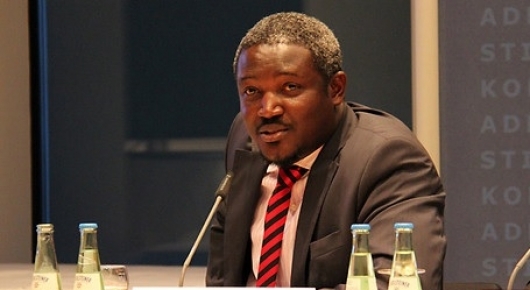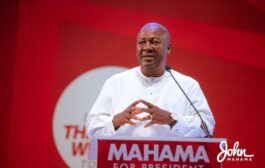Effective from 1 March 2022, Curtis Perry Okudzeto, a former deputy sports minister, and Linda Asante will join Dr. Mustapha Abdul-Hamid at National Petroleum Authority (NPA) as Deputy Chief Executives.
The President acted under the powers vested in him under Section 49 (1) of the National Petroleum Authority Act, 2005 (Act 691).
The National Petroleum Authority was established by an Act of Parliament (NPA Act 2005, ACT 691) to regulate the petroleum downstream industry in Ghana. As a Regulator, the Authority ensures that the industry remains efficient, profitable, fair, and at the same time, ensuring that consumers receive value for money.
The petroleum downstream in Ghana encompasses all activities involved in the importation and refining of crude oil as well as the sale, marketing, and distribution of refined petroleum products in the country. The various commercial activities of the industry include importation, exportation, re-exportation, shipment, transportation, processing, refining, storage, distribution, marketing, and sale of petroleum products.
The industry is one of the key sub-sectors and a major contributor to Ghana’s Gross Domestic Product (GDP).
It currently boasts of over 5,000 service providers and an annual sales value of about GHS12 billion (US$4.01billion) according to 2014 estimates, which is about 10% of the country’s GDP. The industry works closely with International suppliers like BP, Glencore, Vitol, Trafigura, etc, to supply about 80% of petroleum products currently consumed in the country.
Since the establishment of the National Petroleum Authority in 2005, the Authority has supervised the acceleration of the petroleum downstream deregulation process by facilitating the removal of restrictions on the establishment and operations of facilities, and importation of crude oil and petroleum products.
In June 2015, the Authority successfully implemented the final phase of the deregulation process, which is Price Liberalization. This process involves full decontrol of the prices of petroleum products from the government. Private importers, distributors, and retailers are empowered to set ex-refinery and ex-pump prices with no intervention from the government.
The Ghana petroleum downstream industry boasts over 1 million MT worth of state-of-the-art storage infrastructure. Due to the positioning of Ghana along the coast of West Africa, as well as the country’s democratic credentials, security, and stability, the downstream industry is well placed to efficiently store strategic stocks of petroleum products as well as serve as a reliable point for exportation into the neighboring landlocked countries. This is evident in the increasing rate of exportation of petroleum products out of the country.
Source: Mybrytnewsroom.com/Kofi Atakora

















































